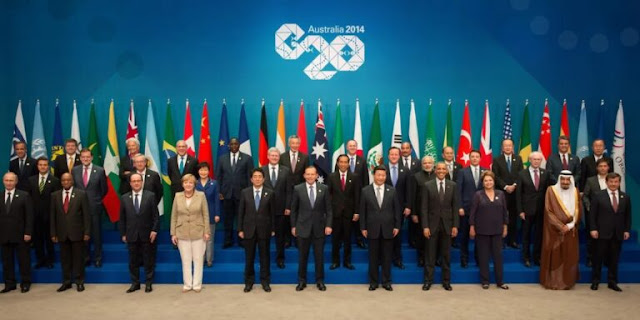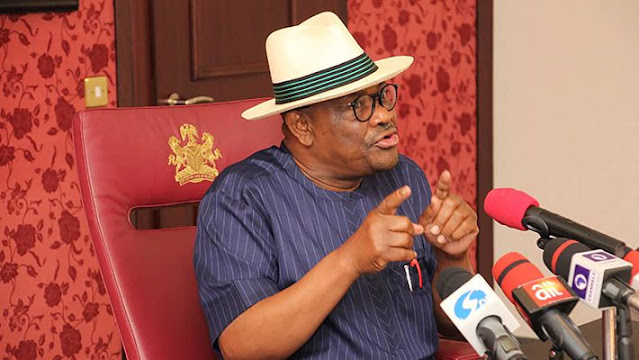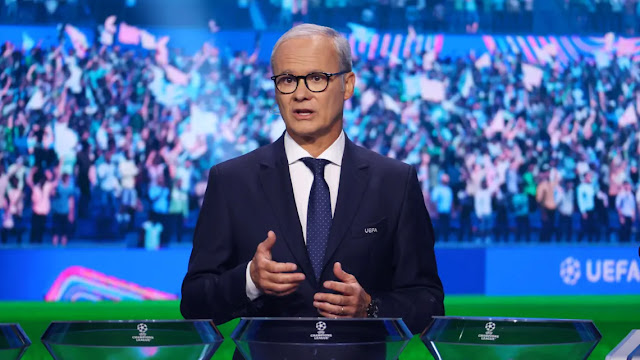On August 28, 2025, a groundbreaking policy brief titled “Maximising Africa’s Influence in the G20” was unveiled during a high-level virtual media roundtable themed “Shifting Africa’s Role at the G20: From Symbolic Presence to Strategic Influence.” Jointly published by the African Union (AU) and AfriCatalyst, in partnership with Global Health Strategies, the report marks a pivotal moment in Africa’s push for a more equitable global financial system. Released amid South Africa’s ongoing G20 presidency, the brief emphasizes that Africa’s newly secured permanent seat in the G20 must transcend symbolic representation to drive substantive reforms in global governance. With recommendations spanning the establishment of a permanent G20 Secretariat, enhanced coordination, and prioritization of African-led initiatives, the report underscores the continent’s potential to reshape global power dynamics. This article provides a comprehensive analysis of the report, the roundtable discussions, the context of Africa’s G20 membership, and the broader implications for global financial and developmental frameworks.
The Policy Brief: A Roadmap for Strategic Influence
The “Maximising Africa’s Influence in the G20” policy brief is a strategic document designed to guide African policymakers in leveraging the continent’s permanent G20 membership, secured in 2023, to address critical challenges. The report argues that Africa’s inclusion in the G20—a forum of the world’s major economies representing over 80% of global GDP—offers a historic opportunity to amplify the continent’s voice in global decision-making. However, it warns that without deliberate action, this membership risks remaining symbolic, failing to deliver tangible benefits for Africa’s 1.4 billion people.
The brief outlines several key recommendations to ensure Africa’s influence is both meaningful and impactful:
Establishment of a Permanent G20 Secretariat:
The report proposes the creation of a dedicated G20 Secretariat to institutionalize Africa’s role within the forum. Unlike the current system, where the G20 presidency rotates annually, a permanent secretariat would provide continuity, enabling Africa to maintain consistent engagement and influence. This body would coordinate African priorities, track commitments, and ensure accountability for G20 decisions affecting the continent.
Stronger Sherpa Coordination:
Sherpas, high-level representatives who prepare G20 agendas, play a critical role in shaping outcomes. The report calls for enhanced coordination among African Sherpas to align strategies and advocate cohesively for the continent’s interests. This includes regular consultations between the AU, South Africa (as the current G20 member), and other African stakeholders to present a unified front.
Alignment of Finance and Sherpa Tracks:
The G20 operates through two main tracks: the finance track, led by finance ministers and central bank governors, and the Sherpa track, which focuses on broader policy issues. The report emphasizes the need for closer alignment between these tracks to ensure that African priorities, such as debt restructuring and climate financing, are addressed holistically. This would enhance the coherence and impact of Africa’s advocacy within the G20.
Prioritization of African-Led Proposals:
The brief identifies key areas where Africa must lead the global conversation, including:
Debt Restructuring: Africa faces a mounting debt crisis, with external debt exceeding $1 trillion in 2024, according to the African Development Bank. The report advocates for G20 support for debt relief mechanisms, such as extended repayment periods and lower interest rates, to alleviate fiscal pressures.
Climate Action: Africa, despite contributing less than 4% of global greenhouse gas emissions, is disproportionately affected by climate change. The report calls for increased climate adaptation funding and technology transfers to support African nations in building resilience.
Health: The COVID-19 pandemic exposed gaps in global health equity, particularly in vaccine access. The brief urges the G20 to prioritize African-led health initiatives, such as regional manufacturing of vaccines and medical supplies.
Digital Governance: With Africa’s digital economy projected to reach $180 billion by 2025, the report emphasizes the need for investments in digital infrastructure and policies to ensure equitable access to technology.
These recommendations reflect a strategic vision for transforming Africa’s G20 membership into a platform for tangible reforms, addressing systemic inequities in global financial governance.
The Roundtable: Voices of Influence
The virtual media roundtable, hosted by the AU and AfriCatalyst, brought together experts, policymakers, and journalists to discuss the report’s findings and the broader implications of Africa’s G20 role. The event, themed “Shifting Africa’s Role at the G20: From Symbolic Presence to Strategic Influence,” underscored the urgency of translating Africa’s membership into actionable outcomes.
Dr. Hamady Diop, Senior Advisor to the AU Special Envoy on Food Systems, delivered a compelling call to action, emphasizing that Africa’s challenge is to convert its new status into actual power. “We must shape rules on equitable financing, debt relief, and climate adaptation,” he said, highlighting the need for Africa to lead rather than follow in global discussions. Diop’s remarks framed the G20 membership as a critical opportunity to address structural barriers that have hindered Africa’s development, such as limited access to affordable financing and underrepresentation in global institutions.
Mma Amara Ekeruche, a researcher at the Centre for the Study of the Economies of Africa, focused on the need for a fairer distribution of Special Drawing Rights (SDRs), a form of international reserve assets managed by the International Monetary Fund (IMF). Ekeruche argued that reallocating SDRs to African countries could provide much-needed liquidity to address debt and stimulate economic growth. “Africa received only $33 billion of the $650 billion SDR allocation in 2021, despite facing some of the world’s most pressing economic challenges,” she noted, calling for G20 support to rectify this imbalance.
Alvin Tofler Munyasia, a Climate Fellow with the Africa Group of Negotiators Experts Support (AGNES), emphasized the intersection of climate action and economic development. He urged the G20 to prioritize investments in Africa’s digital infrastructure and green technologies, which could create jobs and enhance resilience against climate risks. Munyasia also highlighted the importance of global partnerships, noting that Africa’s climate challenges require collaborative solutions involving both developed and developing nations.
The roundtable discussions underscored a shared commitment to ensuring that Africa’s G20 membership translates into concrete benefits, from debt relief to climate resilience and digital transformation. The event also highlighted the role of media in amplifying these priorities, with journalists encouraged to hold policymakers accountable and foster public awareness.
Context: Africa’s G20 Membership and South Africa’s Presidency
Africa’s permanent seat in the G20, secured in 2023 during India’s presidency, marked a historic milestone in the continent’s quest for greater representation in global governance. Prior to this, South Africa was the only African nation in the G20, representing the continent’s interests since the forum’s inception in 1999. The AU’s inclusion as a full member reflects growing recognition of Africa’s economic and geopolitical significance, with the continent projected to account for a quarter of the world’s population by 2050.
South Africa’s 2025 G20 presidency, the first time an African nation has held this role, provides a unique opportunity to elevate African priorities. Under the theme “Solidarity, Equality, Sustainability,” South Africa has prioritized issues like debt sustainability, climate finance, and inclusive growth, aligning closely with the recommendations in the AU-AfriCatalyst report. The presidency has also amplified calls for reform of global financial institutions, such as the IMF and World Bank, which have been criticized for perpetuating inequities that disadvantage African nations.
The timing of the report’s release is significant, as it coincides with a global push for reform of multilateral systems. The 2020s have seen increasing scrutiny of institutions like the Bretton Woods system, which many African leaders argue are outdated and biased toward Western interests. The G20, as a platform for dialogue among major economies, is seen as a critical space for advancing these reforms, and Africa’s permanent seat enhances its ability to influence outcomes.
The Stakes: Why Africa’s G20 Role Matters
Africa’s inclusion in the G20 comes at a critical juncture, as the continent faces a confluence of challenges and opportunities:
Debt Crisis:
Africa’s external debt has surged in recent years, driven by infrastructure investments, commodity price fluctuations, and the economic fallout of the COVID-19 pandemic. The AU estimates that African countries spend over 20% of their budgets on debt servicing, diverting resources from health, education, and infrastructure. The report’s call for debt restructuring aligns with initiatives like the G20’s Common Framework for Debt Treatments, but it emphasizes the need for more ambitious and inclusive solutions.
Climate Vulnerability:
Africa is on the frontlines of climate change, facing rising temperatures, droughts, and floods that threaten food security and livelihoods. The continent requires an estimated $100 billion annually for climate adaptation, yet current funding falls short. The report’s emphasis on climate action highlights the need for G20 support in mobilizing resources and technology transfers.
Digital Transformation:
Africa’s digital economy is growing rapidly, driven by a young, tech-savvy population. However, gaps in infrastructure and access limit its potential. The report’s focus on digital governance underscores the importance of G20 partnerships to bridge these gaps, fostering innovation and economic inclusion.
Health Equity:
The COVID-19 pandemic exposed stark inequalities in global health systems, with Africa receiving less than 2% of global vaccine supplies at the peak of the crisis. The report’s health recommendations advocate for African-led solutions, such as regional manufacturing hubs, to enhance resilience and reduce dependence on external aid.
Africa’s G20 membership provides a platform to address these challenges, but it requires strategic engagement to translate representation into influence. The AU-AfriCatalyst report serves as a roadmap for this transformation, urging African leaders to seize the moment and shape global policies in the continent’s favor.
Reactions and Public Discourse
The release of the policy brief and the roundtable discussions have generated significant interest among policymakers, academics, and the public. On platforms like X, reactions reflect a mix of optimism and skepticism:
Support for Africa’s Role:
Many African leaders and activists have praised the report for its forward-thinking approach, viewing it as a blueprint for asserting Africa’s agency in global governance. The emphasis on African-led proposals has resonated with those advocating for self-reliance and sovereignty.
Skepticism About Impact:
Some observers question whether Africa’s G20 membership will translate into meaningful change, citing the forum’s history of prioritizing the interests of major economies. The success of the report’s recommendations will depend on the AU’s ability to build coalitions and hold G20 members accountable.
Global Attention:
International stakeholders, including G20 partners, have taken note of the report, particularly its focus on reforming global financial institutions. The call for a permanent G20 Secretariat has sparked debate about the forum’s structure and inclusivity, with some developed nations expressing cautious support.
The media roundtable amplified these discussions, with journalists playing a critical role in disseminating the report’s findings and fostering public engagement. The event underscored the importance of transparency and dialogue in building support for Africa’s G20 agenda.
Challenges and Opportunities
The report and Africa’s G20 membership present both challenges and opportunities:
Challenges:
Coordination and Capacity: Ensuring cohesive representation across 54 African nations requires significant coordination and resources. The AU must strengthen its institutional capacity to sustain engagement in the G20.
Resistance from Global Powers: Reforming global financial systems may face pushback from major economies that benefit from the status quo. Africa must build strategic alliances to overcome this resistance.
Domestic Pressures: African governments face domestic challenges, such as poverty and insecurity, that may limit their focus on global advocacy. Balancing internal and external priorities will be critical.
Opportunities:
Global Influence: Africa’s G20 seat provides a platform to shape policies on debt, climate, and health, positioning the continent as a leader in global development.
South-South Cooperation: The report’s emphasis on partnerships aligns with opportunities for collaboration with other Global South nations, such as India and Brazil, to advocate for shared interests.
Economic Transformation: By prioritizing digital infrastructure and climate resilience, Africa can leverage G20 support to drive economic growth and innovation.
Conclusion
The AU-AfriCatalyst policy brief, “Maximising Africa’s Influence in the G20,” marks a pivotal moment in Africa’s quest for a more equitable global financial system. Unveiled during South Africa’s G20 presidency, the report outlines a strategic vision for transforming Africa’s permanent seat into a platform for meaningful reform. By advocating for a permanent G20 Secretariat, enhanced coordination, and African-led proposals on debt, climate, health, and digital governance, the brief positions Africa as a proactive player in global decision-making.
The virtual media roundtable amplified these priorities, with experts like Dr. Hamady Diop, Mma Amara Ekeruche, and Alvin Tofler Munyasia emphasizing the urgency of translating representation into influence. As Africa navigates a complex landscape of debt, climate vulnerability, and digital transformation, its G20 membership offers a historic opportunity to reshape global power dynamics. However, success will depend on the AU’s ability to build coalitions, overcome resistance, and maintain domestic support.
The report and its recommendations underscore a broader truth: Africa’s future in the G20 is not just about presence but about power. By seizing this moment, African leaders can drive reforms that benefit the continent’s 1.4 billion people and contribute to a fairer, more inclusive global order. The journey from symbolic membership to strategic influence has begun, and the world is watching.






